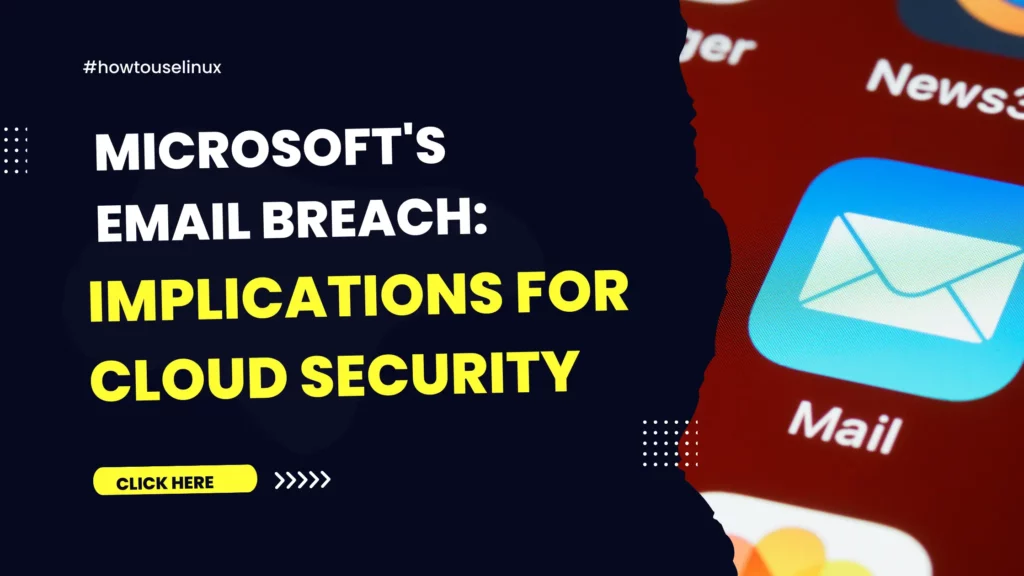Microsoft’s Email Breach: Implications for Cloud Security
On July 11, Microsoft disclosed that a Chinese hacking group known as Storm-0558 gained unauthorized access to the email systems of various US government agencies, potentially compromising a significant number of emails.
Recent reports have emerged, suggesting that the email account of the US ambassador and other high-ranking officials were among those breached.
The attackers were able to gain access to these accounts by using a private signing key that they had acquired, enabling them to generate access tokens for the compromised accounts.
However, a new investigation by the cloud security firm Wiz suggests that the compromised key could have far-reaching consequences beyond just email access.
Get Your Free Linux training!
Join our free Linux training and discover the power of open-source technology. Enhance your skills and boost your career! Start Learn Linux for Free today!According to Wiz, the key could also be used to generate access tokens for other Microsoft services, such as SharePoint, Teams, OneDrive, and third-party apps created by customers.
Essentially, the compromised key could have the potential to impact a broad range of Microsoft’s cloud-based offerings.
Microsoft responded to Wiz’s findings, stating that many of the claims in the investigation are speculative and lack concrete evidence.
Nevertheless, security experts have noted that the methodology used by Wiz in identifying the scope of the compromised key appears technically sound.
The implications of this discovery are substantial, as Microsoft’s cloud services are widely used across various industries.
Microsoft previously stated that its investigations had not detected the compromised key being used by other threat actors, and they had taken measures to prevent related abuse.

However, if the stolen signing key could have been employed to breach other services, even if it was not utilized in the recent incident, it raises concerns about the overall security of Microsoft’s cloud infrastructure and other platforms.
The researchers at Wiz stress that this is not solely a Microsoft-specific issue. If a signing key from major identity providers like Google, Facebook, or Okta were to be compromised, the implications would be profound and hard to fathom.
Given the widespread use of Microsoft’s products worldwide, this incident serves as a critical warning.
There are still unanswered questions that only Microsoft can address, such as when and how the key was compromised and whether other keys were also compromised. Understanding these details is crucial to better securing the cloud services and platforms that millions of users rely on daily.
